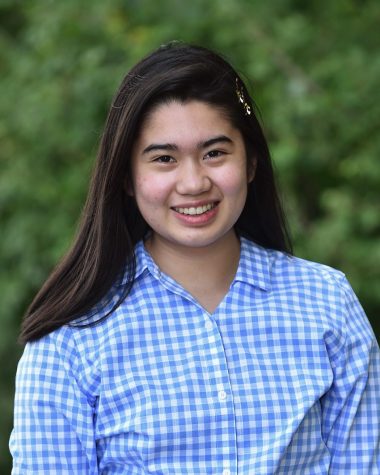A Closer Look at CGL Groups
December 5, 2018
It’s almost time for another “Community Goals for Learning” (CGL) discussion, and while some students look forward to a lively, in-depth conversation, others dread the activity, which brings together randomized groups of Upper School students to discuss sensitive, timely topics.
Among high school students and faculty, some believe that the meetings are engaging because students and faculty are given the opportunity to explore important topics together; however, others believe that the structure of the groups makes for an uncomfortable atmosphere in which to speak about difficult topics in a room of unfamiliar faces.
One prospective student came to visit SLS on the day of the last CGL session, which took place on Election Day and focused on politics.
“The student was visiting 9th grade and was impressed by how the school encouraged a discussion in politics and conducted it in a way where students were respectful. Students at his school are not allowed to talk about politics because it causes both verbal and physical confrontations,” Mr. Rupp, Associate Director of Admissions, notes.
The fresh perspective of this student reveals the unique nature of CGL conversations, especially when compared to those at other schools.
According to Ms. Parker-Burgard, who is heavily involved in planning CGL activities, “The goal of the CGL groups is to have trained student facilitators who help the group practice discussing uncomfortable topics outside of the classroom.”
Students who do not enjoy the activity are quick to associate awkwardness with CGL groups.
“The reason many students feel forced is because they are too uncomfortable,” Ms. Parker-Burgard adds.
The lack of participation in some groups leads to discussions that only scrape the surface of the day’s topic. In a recent class of twelve sophomores, two students and the teacher said that they believe CGL discussions are helpful. The other ten students said that the mandatory activity was awkward and quiet.
English teacher Ms. Walsh, who is new to SLS this year, believes that the CGL groups are beneficial, but that they could benefit from “ice-breaker” activities.
“Speed dating is a good approach to the discomfort in CGL groups. Students will talk about a topic for a little while and then move on to the next person,” Ms. Walsh suggests.
Another student thinks that it would be great to do CGL groups in advisories or advisory pairs because she is more comfortable discussing sensitive topics with people that she knows.
“I think that I could dive into the topics more if I knew that I was surrounded by friends and adults that I’m comfortable with,” she says.
Many students have approached their CGL facilitators to express that a less-structured, bigger group discussion allows for a deeper conversation than breaking into smaller groups. One student says that “Partner A and Partner B” scenarios are “repetitive.”
A change to the CGL groups this year is the requirement that captains of sports teams become trained facilitators.
“It’s interesting that captains of activities such as debate team and Sentinel are not required to do the same,” one student notes.
The next CGL conversation will take place this Friday (12/7) as we welcome Anthony Ray Hinton, who spent 30 years on death row in Alabama for a crime that he did not commit. As students and faculty look forward to Mr. Hinton’s visit, the conversation about the effectiveness of CGL will undoubtedly continue.



